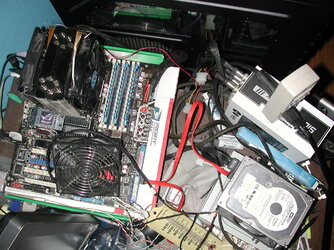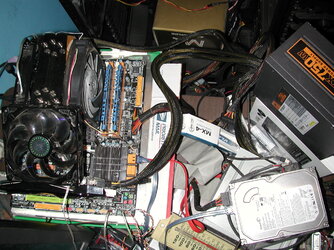OP
- Joined
- Jun 25, 2015
- Thread Starter
- #61
alrite so false alert (I think)
actually he didn't use the CPU overclocked he only tested it once to see how far it could go both with conventional & air-cooling (other than that he used it around 4 years at stock settings)
he claims he got it to 3.5 ghz with conventional cooling (huge Zalman heatsink) and 4ghz with air cooling
but the weird part is he also says he never raises voltage (because he says he's a bit paranoid about voltage, kinda like me)
(because he says he's a bit paranoid about voltage, kinda like me)
so now question is, is it credible that someone can overclock such a cpu all the way from 2.66ghz to 4ghz & keep it stable without raising voltage, or could he have been lying? (he appear honest but it's a huge claim so I wanna know what the experts here think )
I know the i5 750 has good o/c potential but iirc all extreme (+50%) overclocks require a voltage increase no?
actually he didn't use the CPU overclocked he only tested it once to see how far it could go both with conventional & air-cooling (other than that he used it around 4 years at stock settings)
he claims he got it to 3.5 ghz with conventional cooling (huge Zalman heatsink) and 4ghz with air cooling
but the weird part is he also says he never raises voltage
so now question is, is it credible that someone can overclock such a cpu all the way from 2.66ghz to 4ghz & keep it stable without raising voltage, or could he have been lying? (he appear honest but it's a huge claim so I wanna know what the experts here think )
I know the i5 750 has good o/c potential but iirc all extreme (+50%) overclocks require a voltage increase no?


